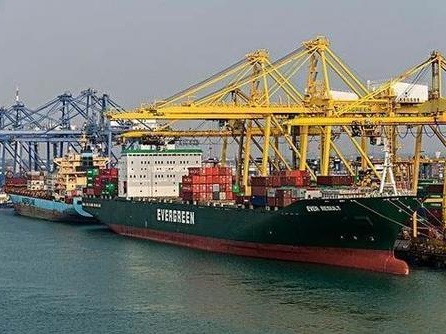InfoQuest (April 02, 2020) - Mr. Weerasak Wangsupakitkosol, deputy minister of the Ministry of Commerce, revealed that at this point Thailand and other countries are facing an economic crisis triggered by COVID-19. He has ordered the Department of Trade Negotiations (DTN) to move faster to identify opportunities of exporting more Thai farm produce to other countries, since Thailand is the world's leading grain producer. According to a report, Thailand has enhanced the use of preferential rights offered by ASEAN-Australia-New Zealand and Thailand-New Zealand FTAs (AANZFTA and TNZCEP). During the first two months of this year, Thailand's export of cassava to New Zealand has increased.
"We hope farmers and enterprises better use the FTAs to export more and tide over the COVID-19 crisis," said the deputy minister.
Ms. Onmon Subthawitham, director-general of the Department of Trade Negotiations (DTN), noted that DTN has accelerated research and analysis on the opportunities of exporting Thai farm produce in 2020 amid COVID-19. According to preliminary findings, in January-February 2020, Thailand exported 4.1 million U.S. dollars of cassava to New Zealand, a year-on-year growth of 392.7 percent, and the major exports were cassava pulp and other cassava, accounting for 80 percent; followed by cassava maltodextrin /modified starch, 13.2 percent; and then sago made of cassava starch and cassava powder.
The reason behind the export increase of cassava products was that New Zealand needs to import cassava products for animal feed industry. In 2019, New Zealand's dairy farming created value up to 10.4111 billion US dollars, up 5.18 percent year-on-year.
Ms. Onmon added that currently Thailand and New Zealand have signed two FTAs, namely AANZFTA and TNZCEP. Under the framework of the two FTAs, New Zealand has canceled import tariff of Thai cassava products, making Thailand more competitive in both price and quality.
Yet Thailand still has to compete with other ASEAN countries that have signed FTA with New Zealand, such as Indonesia and Vietnam. So enterprises have to speed up upgrading and adjustment, and enhance product standard and competitiveness to meet market demand; they should also ensure product quality and hygiene standards in cleaning control of processing, storage and transportation, in a way to help Thailand expand cassava market and increase export value amid the epidemic.
In 2019, Thailand was the world's second largest exporter of cassava products, with a total export value of 2.6061 billion U.S. dollars. Among its major export markets, China accounted for 52.2 percent, Japan 10.9 percent, Indonesia 7.6 percent, Taiwan 5.2 percent and the US 3.6 percent. New Zealand is Thailand's 16th largest export market, and a new market with growing exports. In January 2020, 88.5 percent of New Zealand's global imports of cassava products came from Thailand, followed by Australia, US, and Japan.
Source: InfoQuest, by Phana / Kasamarporn / Rachada, translated by Xinhua Silk Road
Notice: No person, organization and/or company shall disseminate or broadcast the above article on Xinhua Silk Road website without prior permission by Xinhua Silk Road.




 A single purchase
A single purchase









